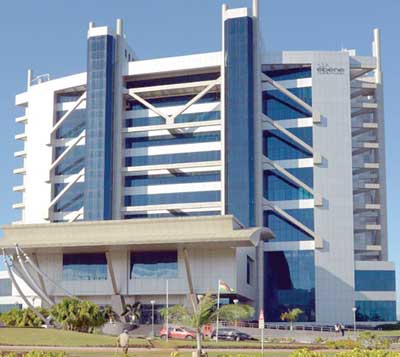The Information, Communication and Technology (ICT) sector remains the largest recruiter in Mauritius. What are the job prospects and what are the expectations of employers?
News on Sunday reports on this beacon of light amid the economic gloom for job-seekers. You have little formal qualifications, or maybe you are highly qualified and looking to put your skills into practice... Then, the ICT sector has something to offer.
According to the latest figures published by Statistics Mauritius, the ICT sector is in full expansion. Figures for last year reveal that even though six companies employing ten or more persons closed down, bringing the total number of large establishments to 134 as at end-2015 – there were an increasing number of persons working in that sector. What this means is that companies are consolidating and more importantly, they are recruiting!
Nearly one in every twenty (4.8%) Mauritian forming part of the workforce is employed in the ICT sector. The number of persons stood at 15,006 as at end of last year, having increased by 1.8% over 2014. In terms of gender parity, the ICT sector seems to be devoid of any bias. As at end of last year, there were 8,120 males and 6,886 females working.
Anibal Martinez from CareerHub.mu recruitment agency states that there will be around 2,000 (highly technical positions) to 4,000 (positions for IT support and less technical) job opportunities up for grabs until the end of the year. In fact, he explains that any vacancy adverts by ICT companies would seek at least two vacant positions. On the Myjob.mu website, more than 150 job vacancies are available every month, says the websites head of communication and recruitment Aurélie Marie. Based on this trend, she estimates that around 1,500 vacancies will be available via the online recruitment agency until year-end.
Trend over the past five years
According to our interviewees, the job prospects in the ICT keep on rising. In fact, Anibal Martinez says that jobs in this sector have more than doubled over the past five years with the arrival of new operators and diversification of services in traditional BPO providers and agencies in marketing and advertising.
“These operators are now offering services in digital marketing, as they realise that the digitisation of their business model is important,” he says. Aurelie Marie observes that recruitments in the ICT are up 25-30% for 2016, as compared to the same period last year (January-June).
Moreover, she states that there is growing interest among young people to join the sector because they have more information, advice and visibility on its operations. The industry tends to recruit and communicate better than other sectors. “Through events, social networks, Internet, job fairs, and open days, ICT companies manage to attract talents and new skills. Besides, another observation, openings are attracting more and more female profiles, which I believe is a very positive sign”, she says.
Anibal Martinez states that usually a minimum degree (BSc or BEng) is required. However, he says, nowadays employers are looking addition for additional specialisation in certain areas. Work experience is also another important factor. “In fact, we have observed that more importance is given to experience rather than degrees,” he says. For networks and system administrators, a first degree in IT is required.
“Furthermore, technical skills of database management, security and backup data. responsiveness, organizational skills, ability to manage emergencies, detect anomalies / bugs and finding solution are other important factors”, says Aurelie Marie.
For a Web & Software developer, apart from a degree in IT, technical mastery of programming languages, the back end and front-end development abilities are also required. Moreover, the candidates should possess good visual sense, analytical skills and understanding of customer needs. For computer engineers, network and systems engineer, a Master’s degree in IT is a minimum requirement. Advanced techniques in the art, capable of managing a project team, leadership skills, being versatile, mastering the strategic issues of the company are other key factors to be considered. For an IT technician, a Certificate in IT, CCNA etc. is sufficient.
Salary scale
Like any other job, the salaries in this sector varies according to the qualifications and the experience of the candidates. Below are some of the salaries offered:
- IT Technician: Rs 12,000 – Rs 15,000
- Network and system administrator: Rs 25,000 – Rs 45,000
- Web & Software developer: Rs 25,000 – Rs 45,000
- Engineers: Rs 50,000 – Rs 75,000
- Project or team manager with more than 5 years of experience: Rs 100,000.
 Par
Leena Gooraya-Poligadoo, Yaasiin Karimbocus
Par
Leena Gooraya-Poligadoo, Yaasiin Karimbocus
 Par
Leena Gooraya-Poligadoo, Yaasiin Karimbocus
Par
Leena Gooraya-Poligadoo, Yaasiin Karimbocus

 J'aime
J'aime